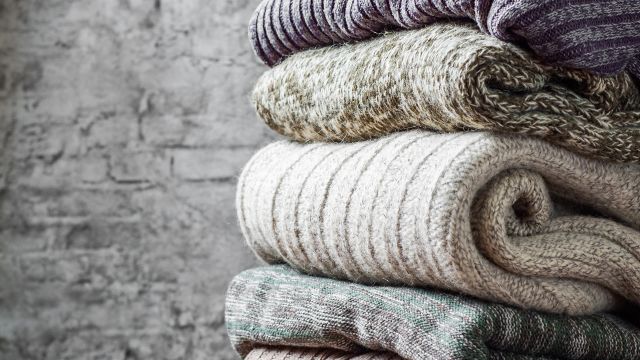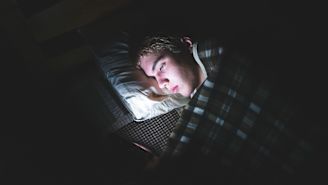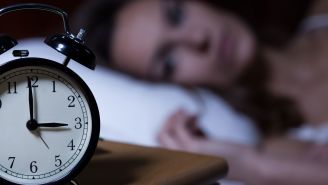Updated on July 31, 2024.
Can’t sleep at night?
Whether anxiety is keeping you up or you just aren’t able to log the deep, restful sleep you crave, weighted blankets are increasingly being touted as a remedy.
These blankets often look like regular comforters. The difference is that they are typically filled with sand, grains, dried beans, pebbles, or beads or pellets made of glass, steel, or plastic. They can weigh anywhere from three to 30 pounds. Some users of weighted blankets claim that the feeling they get from them is akin to a warm hug or a massage.
Before you run out to buy one, though, realize that a weighted blanket may not be a surefire fix for what’s keeping you awake.
“People with sensory issues, post-traumatic stress disorder (PTSD), autism, anxiety, or depression may all be helped by having the comfort of weight on them,” says Carlton Kemp, MD, a sleep medicine specialist with Memorial Health University Medical Center in Savannah, Georgia. “But it’s not the be-all, end-all for sleep issues. It might be part of the solution, but alone won’t solve the underlying problem.”
Here’s what the research shows and what to know about weighted blankets.
How do weighted blankets work?
Weighted blankets have been used for many years to calm people with anxiety, autism, and attention problems. They’re designed to provide a gentle pressure that mimics the feeling of being held, almost like being back in the womb, says Dr. Kemp.
Have you ever swaddled a newborn baby? It’s a little bit of the same concept.
This type of pressure is called deep touch pressure. When it’s evenly distributed to the touch receptors in your skin, it can help calm you down. That’s because it’s believed to help you switch from a heightened “fight or flight” stress response to a calmer “rest and digest” mode.
Deep touch pressure is also thought to increase levels of oxytocin in the brain. This hormone lowers blood pressure and heart rate and is associated with calm. Oxytocin may also help boost mood, promoting an overall state of well-being that, in turn, may be conducive to a good night’s sleep. The theory is that sleeping with a weighted blanket has comparable effects to deep touch pressure.
Melatonin levels may also increase with the use of a weighted blanket, according to a small 2022 study published in the Journal of Sleep Research. Melatonin is a hormone that plays an important role in determining when a person falls asleep and wakes up.
What’s the evidence for weighted blankets?
While weighted blankets may help ease anxiety, a 2020 review published in the American Journal of Occupational Therapy reported that there wasn’t yet enough clear evidence that they could help with insomnia. Other research has suggested a benefit for insomnia in people with certain health conditions.
A 2024 narrative review published in the Journal of Sleep Research looked at how a variety of non-sexual social touch methods affect sleep quality. These included approaches like touch therapy (such as massage), contact with animals, or touch from inanimate objects, including weighted blankets. The authors included several studies in which weighted blankets helped relieve insomnia in patients with attention-deficit/hyperactivity disorder (ADHD) and children with autism spectrum disorder.
Weighted blankets may also be effective for easing insomnia in people with psychiatric disorders like bipolar disorder and major depressive disorder, according to a small study published in 2020 in the Journal of Clinical Sleep Medicine. Another small study, published in 2022 in Geriatrics (Basel), found that weighted blankets helped older adults living in nursing homes fall asleep more quickly and wake up less often in the night.
It’s important to note that most of the supposed benefits of weighted blankets have been based on the personal experiences reported by users or their caregivers. Overall, more research is needed to demonstrate conclusive and consistent benefits.
Who might be a candidate for a weighted blanket?
If you have insomnia or are just looking for ways to improve your sleep, then it may be reasonable to try a weighted blanket, says Kemp. Just remember that there are other treatments available for insomnia that are backed by more research.
“The current gold standard treatment is cognitive behavioral therapy (CBT), which is a short-term form of counseling that can help you learn new sleep habits as well as techniques to calm your mind so it’s easier to fall asleep,” explains Kemp.
Other strategies that may help you sleep include:
- Sticking to a consistent sleep and wake schedule
- Avoiding blue light from electronic devices for several hours before bed
- Limiting alcohol and caffeine, especially close to bedtime.
People with restless legs syndrome (RLS) may also benefit from a weighted blanket, Kemp notes. The condition—which affects five to 10 percent of adults in the United States—is marked by an irresistible urge to move your legs, sometimes including uncontrollable movements while you sleep. The sensation of the weighted blanket on your legs may override that restless feeling.
While there’s very little research specifically on weighted blankets and RLS, Kemp adds, these blankets may help relieve some of the anxiety associated with the condition.
Who shouldn’t use a weighted blanket?
Bear in mind that there are no regulations or official indications on who should and should not use a weighted blanket. That said, there are certain people who should probably avoid weighted blankets. If you have sleep apnea, for example, you may not want anything heavy on your chest that could potentially constrict your breathing, says Kemp.
You should also check with a healthcare provider (HCP) before using a weighted blanket if you have other conditions, including:
- A history of heart disease, stroke, respiratory problems, or cancer
- Abuse of sleeping pills
- Severe cognitive dysfunction
The blankets are also not appropriate for very small children (under the age of two) or older adults who are considered frail because of the risk of suffocation or injury. These types of people may struggle getting out of bed with the blanket on top of them, Kemp adds. The American Academy of Pediatrics (AAP) doesn’t recommend having weighted objects near a sleeping infant.
There may be a risk to older children, too. In 2022, one brand of weighted blankets was recalled by the Consumer Product Safety Commission (CPSC) after two children, ages four and six, suffocated under the blankets. Frail older adults and parents of children should check with their HCP or occupational therapist before trying a weighted blanket.
How to shop for and use a weighted blanket
If you plan to give a weighted blanket a try, as a general guideline, pick one that’s about 10 percent of your body weight. (So, if you weigh 150 pounds, look for one that’s around 15 pounds.)
It’s important to lie it flat across your bed, so the weight is evenly distributed. If you tend to get hot at night or live in a warmer area, opt for a blanket made of cotton, which is more breathable than polyester. There is scant research comparing one type of weighted blanket to one another, so you may have to do some trial and error before finding one that you like, consulting with your HCP as needed.
Keep in mind that some blankets can be expensive (with some costing upwards of hundreds of dollars) and they aren’t usually covered by insurance.
“I tell my patients that if they want to try one, then, sure, why not. It probably won’t hurt, and it may help,” says Kemp. “But we don’t really have good enough data to recommend them as a definitive solution.”







